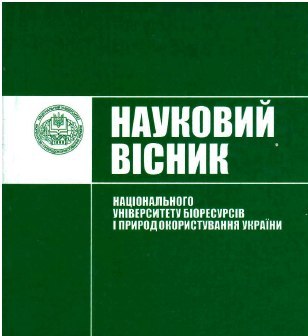Linguistic description of names of green plants: the problematic aspect
DOI:
https://doi.org/10.31548/philolog0(263).2017.081%20-%2088Abstract
Currently the issues of the regulation of language processes in the field of terminology, emergence and enlargement of metalanguages are of particular interest to linguists.
Specialized linguistic functioning unites a range of multiaspect terminology issues as everything connected with clarifying the concept И?term’ takes linguistics closer not only to different fields of knowledge but to different areas of professional practice, activities as well.
The objectives of the article are to monitor the way the concept И?term’ appeared in Ukrainian and foreign linguistics and to point out key definitions of terminology, term and its characteristics.
The definition of the key concept И?term’ is considered to be an important issue.
In Ukraine the word И?term’ dates back to the eighteenth century. Ukrainian philosopher G. Konysky developed the concept of the term. In foreign linguistics the study of the term emerged only in the early twentieth century. The definition of the term was commented on by the following scholars: L. Doederlein, Greenough, Cartridge, A. Shimmer, J. Vendryes, I. Smith, E. Gilbert.
One of the important works on the terminology is the article of G. Vinokur И?About certain word formation phenomena in Russian technical terminology’ (1939).
Among existing definitions of the term in academic literature we have chosen the one suggested by A. Kryzhanivska and N. Simonenko which is based on the major function and implies the ability to express a scientific concept. On summarizing scholars’ works eight key term peculiarities have been distinguished.
We consider the definition of terminology by B. Golovin and R. Kobrin which implies a spectrum of terms correlating on conceptual, derivational, semantic and grammatical levels to be important.
Terms perform two functions – the nominative one that is to nominate notions and the one reflecting the content of the notion.
Consequently, the regulation of different definitions of the notions И?term’ and И?terminology’, distinguishment of key term characteristics will dispel confusion with linguistic studies on the issues of terminology and will make the examination of terms of certain fields of knowledge more understandable and accessible.
References
Антонович, М. М. Роль асиндетичних субстантивних словосполучень типу NNN у стилістичному маркуванні англійського газетного тексту[Текст]/ М. М. Антонович // Іноземна філологія. – 1987. –Вип. 88. – С. 63–68.
Ахманова, О. С. Словарь лингвистических терминов [Текст]/ О. С. Ахманова. – М. : Сов. энциклопедия, 1969. – 607 с.
Белецкий, А. А. Лексикология и теория языкознания (Ономастика) [Текст] / Белецкий А. А. – К. : ?зд–во Киев. ун–та, 1972. – 209 с.
Билиця, Я. Т. Надслівні термінологічні сполучення – джерело формування політичної фразеології німецької мови[Текст] / Билиця Я. Т. // Іноземна філологія. – 1988. – Вип. 90. – С. 64–70.
Богранд, Р. де. Міжнародна термінологія: перспективи для нового порядку денного [Текст] / Богранд Р. де // Науково–технічне слово. – 1993. – №1. – С. 23–34.
Вакулик, І. І. Наукова термінологія як фактор формування наукової компетенції [Текст] / І. І. Вакулик // SCIENCERISE. – РС «Technology center». – Vol.9/1 (14). – 2015. – С. 71–74.
Ванрайх У. Языковые контакты: Состояние и проблемы исследования[Текст] /У. Ванрайх. – К. : Вища шк., 1979. – 246 с.
Ганич Д. І. Словник лінгвістичних термінів / Д. І. Ганич, І. С. Олійник. – К. : Вища шк., 1985. –. 360 с.
Головин Б. Н. Лингвистические основы учения о терминах: учеб. Пособие[Текст] / Головин Б. Н., Кобрин Р. Ю. – М. : Высшая шк.,1987. –103 с.
ДСТУ 3966:2009 “Засади і правила розроблення стандартів на терміни та визначення понять”[Текст]. – К. : Держспоживстандарт України, 2010. – 35 с.
Жовтобрюх, М. А. Курс сучаcної української літературної мови: Ч. І [Текст] / М. А. Жовтобрюх, Б. М. Кулик. – К. : Рад. школа, 1965. – 423 с.
Іваницький, Р. В. Лексикографічні аспекти нормалізації термінів (на матеріалі німецьких, англійських, українських та російських термінологічних одиниць): дис. на здобуття наук. ступеня канд. філол. наук: 10.02.04 «Германські мови» [Текст] / Руслан Вікторович Іваницький. – Чернівці, 1995. – 184 с.
Крижанівська, А. Г. Актуальні проблеми упорядкування наукової термінології[Текст] / Крижанівська А. Г., Симоненко Л. О. – К., 1987. – 163 с.
Панько, Т. І. Українське термінознавство [Текст] / Т. І. Панько, І. М. Кочан, Т. П. Мацюк. – Львів, 1994. – 216 с.
Симоненко, Л. Формування української біологічної термінології [Текст] / Л. Симоненко. – К. : Наук. думка, 1991. – 151 с.
Яворская Г. М. Лексико-семантическая типология в синхронии и диахронии [Текст] / Г. М. Яворская. – К. : Наука, 1998. – 112 с.
Downloads
Published
Issue
Section
License
Relationship between right holders and users shall be governed by the terms of the license Creative Commons Attribution – non-commercial – Distribution On Same Conditions 4.0 international (CC BY-NC-SA 4.0):https://creativecommons.org/licenses/by-nc-sa/4.0/deed.uk
Authors who publish with this journal agree to the following terms:
- Authors retain copyright and grant the journal right of first publication with the work simultaneously licensed under a Creative Commons Attribution License that allows others to share the work with an acknowledgement of the work's authorship and initial publication in this journal.
- Authors are able to enter into separate, additional contractual arrangements for the non-exclusive distribution of the journal's published version of the work (e.g., post it to an institutional repository or publish it in a book), with an acknowledgement of its initial publication in this journal.
- Authors are permitted and encouraged to post their work online (e.g., in institutional repositories or on their website) prior to and during the submission process, as it can lead to productive exchanges, as well as earlier and greater citation of published work (See The Effect of Open Access).

